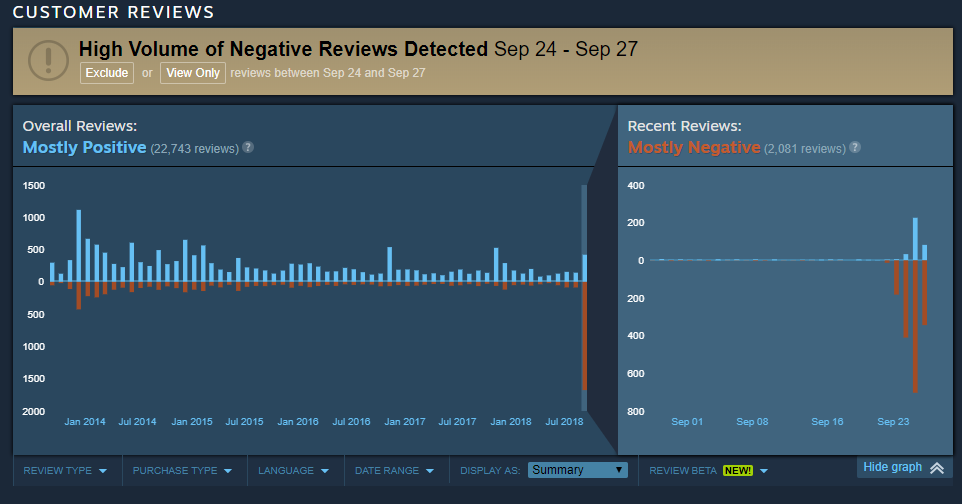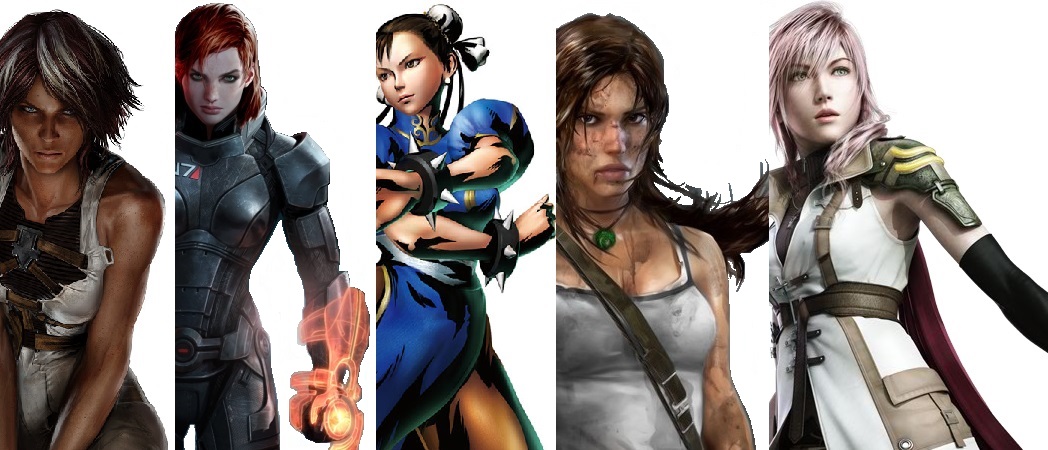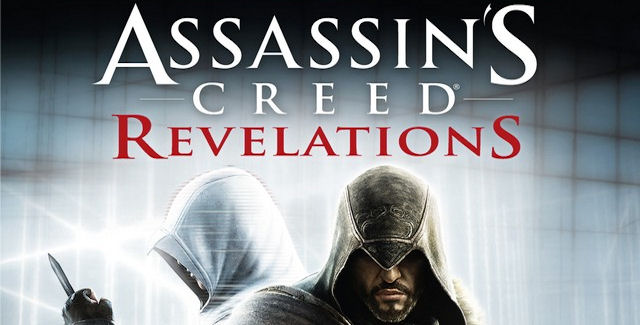Content warning: Sexism in historical based games are discussed. Many articles that are linked contain hostile comments. Some of these comments are mentioned or paraphrased.
If you visit Total War: Rome II’s Steam page you’ll notice something interesting:
Over the past week the reviews for this game have spontaneously plummeted. Why? Because some people are upset that an update from back in March changed the spawn rate of female generals. The update includes increased percentages to 10% – 15% for some factions. Kush increased to 50% while Romans and Greeks retained their 0% spawn rate. Now the game is being review bombed.
The reason why people are so concerned about it now is because of evidence and backlash recently presented by pro GamerGate and Neo Nazi websites.*** Many of the arguments presented on the websites along with comments in the Steam forums stated they were upset by the historical inaccuracies because it broke their immersion or because they were upset from the “forced political correctness imbued by leftist SJW’s”. Many called for a mod to reduce these percentages – and so someone created the Patriarchy Mod. If the mod was not enough the comments exposed the extreme sexism endorsed by this way of thinking: “Historical accuracy > whining women”, “can you make a version that disables female generals altogether?”, “the Kitchen is the ultimate battle”.
Creative Assembly responded, “This is [the update] to broadly represent the cultural differences in those factions during the time the game is set.” These percentage chances are moddable by players. We’ve not seen a verifiable bug where this is shown to be different or not working as intended. We have no plans to patch this out o r remove this feature from the game.”
r remove this feature from the game.”
This is not a new argument or a new occurrence. A similar situation happened earlier this year near the beginning of the summer with the Battlefield V announcement trailer. In the trailer a woman fights alongside men during a WWII battle. She kills someone with her robotic arm, tanks are crashing through entire buildings, planes pass a foot above the characters head – it is intense and dramatic. However, people were not happy with the inclusion of a woman.
Crying for historical accuracy and upset about how it broke their immersion some gamers responded by stating they would not buy the game and started #notmybattlefield on Twitter. EA responded by saying “accept it or don’t by the game” and created the #everyonesbattlefield.
These games are not intended to educate. They are intended for entertainment. They are based on around historic events and historic trends, or more simply put – “this game is inspired by true events…”. They are not aimed at being 100% historically accurate. Everything in them is a representation. In Total War: Rome II, the city sized humans are representations of groups of people at a certain location. Last time I checked humans back then were not the size of multiple skyscrapers. While the game contains historically real factions and groups – like the Celtics and the Romans – you can choose to play any of these groups to vastly different outcomes each time you play. The wars you have will not be the same, the battles you have will not be the same.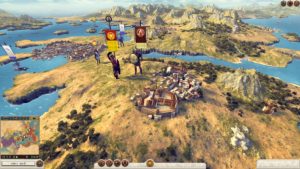
Even the idea of representing history in a game could be considered inherently inaccurate: Games can be replayed and some (such as Total War) with different outcomes or events altogether. History, however, cannot be replayed and we cannot change the events that happened. So why is historic accuracy only an issue in games when women, people of color, or other minorities are involved? Historic games put a lot of effort into detailing and studying the era of their games, but many still have huge historical inaccuracies to streamline the game’s overlaid narrative or to seem more fun (think Assassin’s Creed, Battlefield, Total War). This is seemingly not an issue though until there are attempts at diversifying the game.
All of this reminds me of a very specific quest I encountered in the Assassin’s Creed: Origins discovery tour – a mode that is supposed to be educational. In this mode you walk around the game world while the game explains the events or culture surrounding the location and provides the user with supplementary pictures. One such quest brought me to some teacher schooling children outside. The group of children included boys and girls and the narrator explains, “The team made the choice to show both genders attending class within the context of the game world. Even though it is historically inaccurate, the team felt it was not necessary to prioritize historical sexism over inclusive gameplay.”
When I first encountered this, well before the Total War and the Battlefield controversy, I was extremely happy. The developers recognized the balance between informing and educating users and inclusivity. The discover tour provides users with historical accurate information but not everything is endorsed within the game world. They make sure to make note of it, but they do not change it. That is not to say they ignore the issues of historic sexism or sugarcoat it. Anyone who has played a majority of the game still knows that the sexism and difficulties faced by women are still rendered within the game. Furthermore, that is not to say there are no historical inaccuracies within the narrative or that representation was perfect.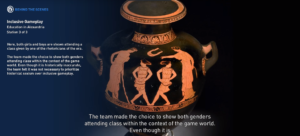
This is also not to say that I think research is bad when making a game world. On the contrary developers and studios should always do their research or hire consultants for their research. This rings particularly true when recounting historic events that negatively affected many people or when representing a group of people that is not well understood and still treated poorly in the modern era. Mafia III is a good example of this. The developers made an enormous effort to create a historically authentic game world amid a fictional narrative. The game is not necessarily intended to educate either but it is intended to emphasize the racial tensions and biases of the era because it significantly relates to protagonist and his characterization.
I do not think accuracy and authenticity are completely devoid and separate constructs of one another. Each idea needs to be thought about in how they are conveyed in the game world and developers need to be careful on how they decide to create each one, especially if at odds with each other. How you should do so depends on the narratives, the characters, the setting, and the purpose for all of these at play.
Unfortunately, the problem remains, and will always remain, that history had not been kind to those considered an “other”. It had repeatedly and devastatingly outcast, brutalized, ignored, or appropriated and plagiarized women, people of color, people in the LGBTQIA community and anyone with a different stance on religion. While different cultures and eras did this to varying degrees, it is not something we can go back and change. Therefore, this ostracization is continued in the modern era for simply continuing to relay this information from the same perspectives and similar geographic areas in a large part of history classes, historic documentaries, “historic” movies, and most other forms of modern electronic media.
Now, I am NOT saying that these histories are not important or should not be taught. What I am saying is that this imbalance should be mentioned and addressed more often. I am saying that I understand time is limited in classrooms and on screen, but that history should be shown with a broader lens and from different peoples’ perspectives who also encountered these events – especially if brutalized by them. I am saying that we should be more careful in how we perpetuate and idolize harmful historic ideals (i.e. sexism, racism, homophobia) especially in entertainment.
In terms of video games specifically aimed at entertainment and not education, we also need to be careful in how we translate “historical accuracy” into gamified constructs and narratives; particularly when considering the, aforementioned, inherently imperfect paradigms and platforms for which these historical based events or “accuracies” are delivered on. The industry has a long way to go and understanding that not all representation is good representation if done poorly still remains equally important. Regardless, it is refreshing to see publishers and developers defend against the sexist and misogynistic responses and support the decisions to make their games more inclusive and diverse. Now we just need to continually reinforce this and broaden this fervent defense of inclusivity to other minorities as well.
*** I am not linking the sources here. I do not want to attribute to their website count any further and, if you wish, you can pretty easily find out these sites through more research. I advise extreme caution if doing so and providing content and trigger warnings of every kind.

